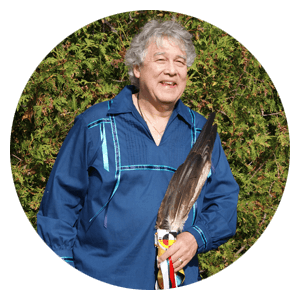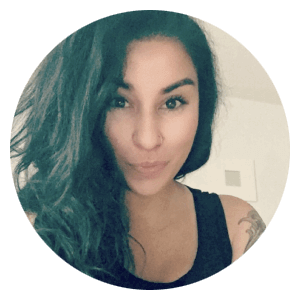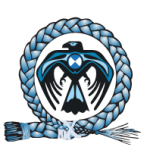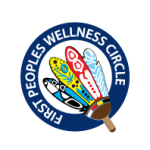W. J. (Bill) Mussell, Board Member: (a) First Peoples Wellness Circle (grew from Native Mental Health Association of Canada—President 20 years); (b) Mood Disorders Society of Canada; (c) Thunderbird Partnership Foundation (V.P). Bill also serves as co-lead of the First Person First Peoples Hub, CDRIN, based at the University of Saskatchewan.
While doing volunteer work as an executive member of the North American Indian Brotherhood (NAIB) and full time under-graduate studies at UBC. in 1959-60, I decided to pursue studies in social development, education and health. Our NAIB research work that brought us into many First Nations of the Interior Tribes of B.C. clearly revealed high need for restorative work to bring about improved physical, emotional, cognitive and spiritual health and wellness. Such work called for serious study of conditions and situations contributing to the absence of wholistic wellness, and documentation of our history that would reveal the effects of the laws and policies governing our lives as Bands or communities of status Indians under the Government of Canada that did not perceive us as human beings. Studies like these revealed why the teachings of our ancestors, especially the spiritual dimensions of living life and related rituals and ceremony, including walking tall with pride and dignity, were no longer apparent.
Within the following decade, I earned credentials in social work, secondary teaching, and began studies in counselling psychology, and gained considerable work experience professionally and voluntarily. I served as treasurer and then president of the Vancouver Indian Friendship Centre board (1964-67) that focused attention on the challenges being faced by growing numbers of reserve-based First Nations people who were transitioning to Vancouver often with dreams of a better life, including pursuit of higher education. The Centre’s programming relied heavily upon time generously provided by volunteers familiar with such challenges. While funds for on-reserve services and programs were scarce, they were even more difficult to access in Vancouver. I also became familiar with work carried out by personnel of the corrections field by serving as a probation officer mainly on Vancouver Island and then as a federal parole officer based in Vancouver and then Abbotsford. Concurrent with the latter work, I taught a few introductory criminology courses and served as Chief of my First Nation before accepting work at Ottawa, addressing Indian Affairs matters from a national perspective. Witnessing the emergence and development of the NIB, the presentation of the Red Paper to the Prime Minister, and experiencingaspects of Indian/White relations in most parts of Canada were highlights of this segment of my life’s journey. I returned to Vancouver in 1971.
During the ensuing 30 years, my chosen work focused on Indigenous education, health and social development, including consideration of social justice, governance, healing, and significance of culture as a social determinant of well-being. These pursuits were enriched through engagement in a graduate studies program (adult and higher education), establishment of a post-secondary institute custom-designed to prepare and equip First Nation community-based practitioners to carry out health education, delivery of health and addictions services, and actively promote family and community wellness by building upon cultural strengths. The Salishan Institute offered these programs for close to 15 years at the Naramata Centre, and was contracted by many BC and Alberta First Nations to do capacity building education and training in their communities. Such work led to engagement in a variety of research projects, contracted reports and publications, evaluation studies (community health and family and child services), and keynote and related conference presentations. I proudly served as the Institute’s Manager and Principal Educator. Projects addressing violence and sexual abuse, depression and suicide, and health and wellness in our First Nations communities also received priority attention during this stage of my work life that brings me well into my senior years.
Current challenges continue to feature active engagement in mental wellness, addictions, epigenetics, need for wise practices to restore pride and confidence in being ‘people of the land’ moving forward with confidence, hope, meaning, community support, and purpose anchored in teachings of our Indigenous ancestors. Doing truth and reconciliation work best describes my on-going purpose in life that is satisfied through active engagement with the organizations identified at the outset of this profile.
Food for thought:
In our search for answers to questions of contemporary Indigenous life, we must remember that we know very little about life of our ancestors between 1850 and 1920,especially those aspects of life that enabled survival and thrival. For us, life is continuous, and being continuous, it is being shaped and reshaped as each generation does its best to embrace life.














